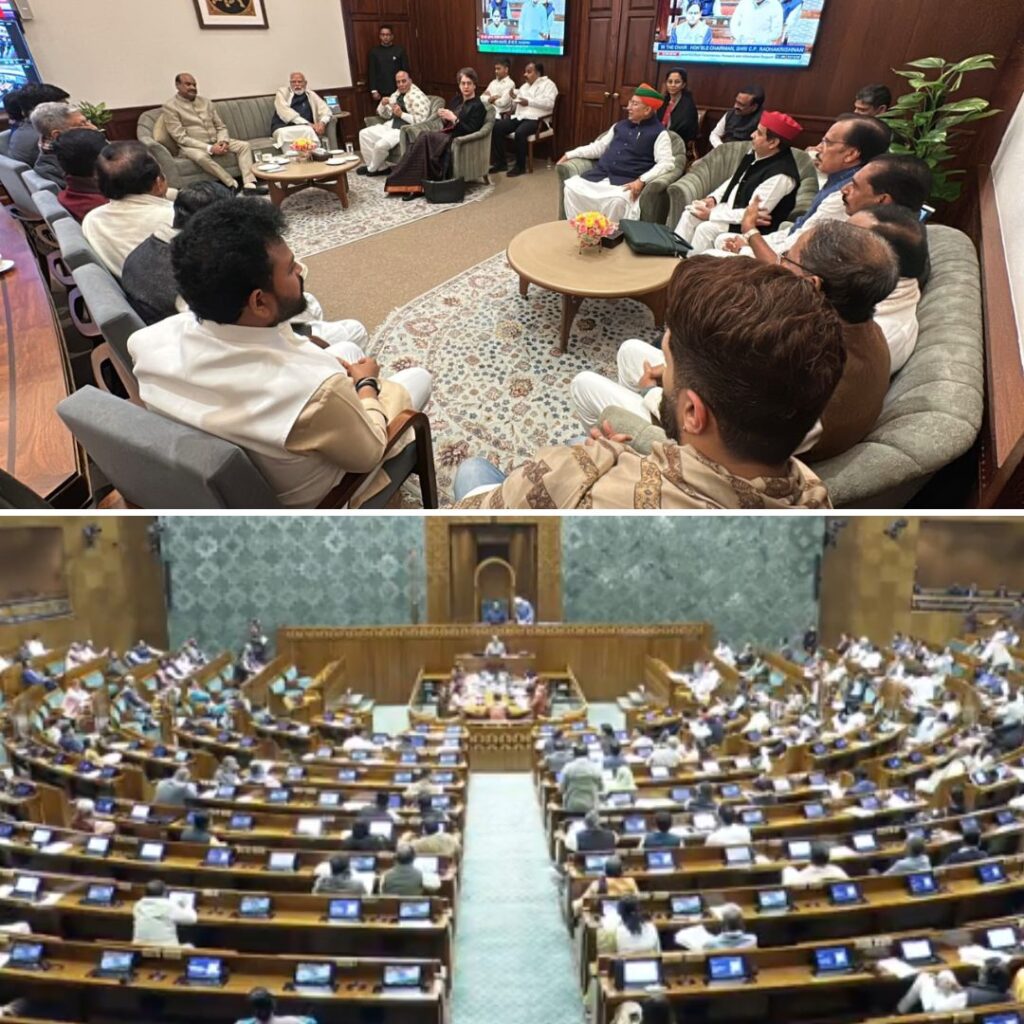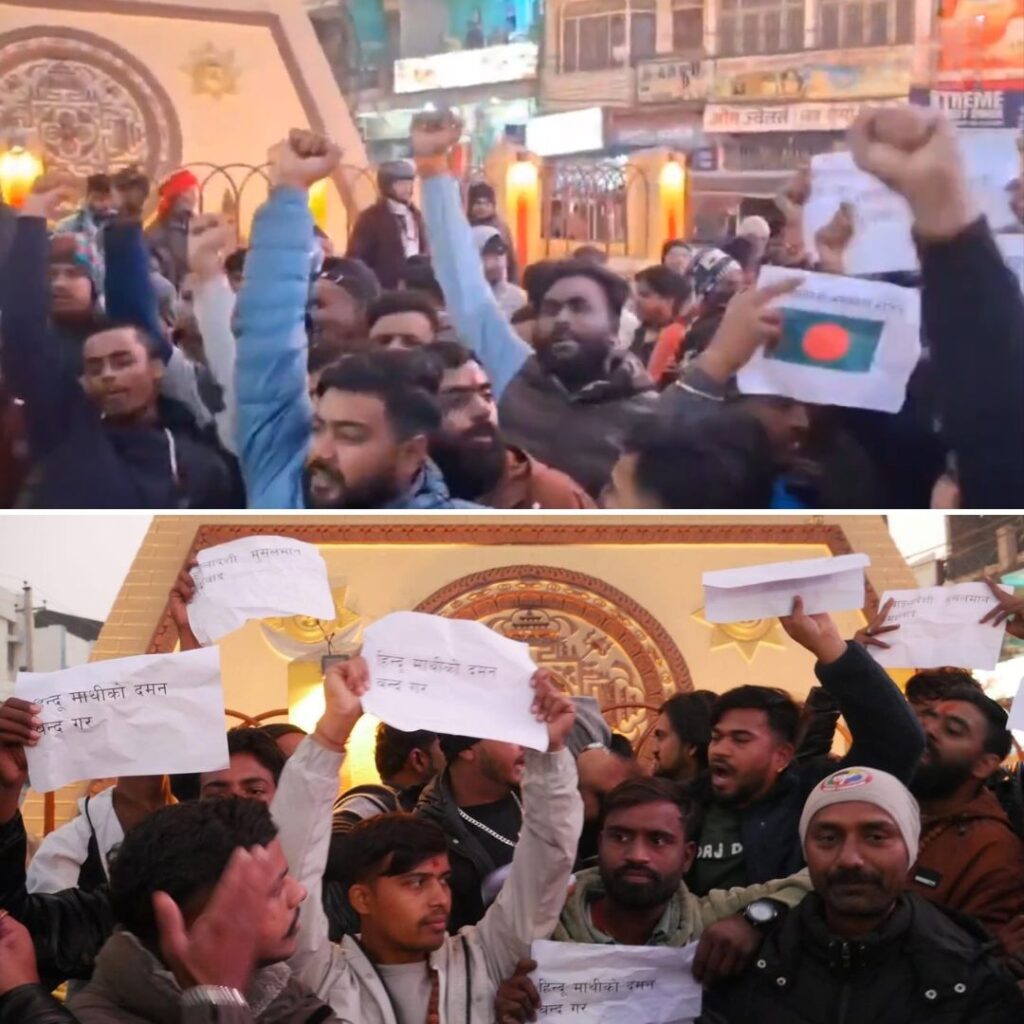A private TV channel’s episodes on ‘Muslims infiltrating’ government services was restrained by the Supreme Court on September 15. The top court called the show an attempt to vilify Muslims. ‘You cannot target one community and brand them in a particular manner,’ SC said while restraining Sudarshan TV from airing its show ‘Bindas Bol’ with seven of nine episodes left to be broadcasted.
The show had claimed that the upper age limit for Hindus in the civil services examination is 32 years and the age limit for Muslims is 35 years and while six attempts are for Hindus to appear in the civil services examination, Muslims are entitled to nine attempts.
‘It appears that the object of the programme is to vilify the Muslim community and make it responsible for an insidious attempt to infiltrate the civil services,’ a three-judge bench stated while calling the show ‘rabid’.
The bench which was headed by Justice D Y Chandrachud said in the order that an attempt was made to insinuate that the community is involved in a conspiracy to infiltrate the civil services.
Terming India as a melting pot of civilizations, cultures, religions and languages, the bench said that any attempt to vilify a religious community must be viewed with grave disfavour by this Court as the custodian of constitutional values and its duty to enforce constitutional values demands nothing less.
Claim:
The upper age limit for Hindus in the civil services examination is 32 years and the age limit for Muslims is 35 years.
Fact Check:
Sudarshan News Editor-in-Chief Suresh Chavhanke, on September 11, aired a bulletin on ‘UPSC Jihad Par Ab Tak Ka Sabse Bada Khulasa (The Biggest Expose of All Time on UPSC Jihad)’. The claim made in the show is fundamentally misleading since the candidates taking the UPSC exam cannot be divided based on religion as UPSC does not issue its result or any of the notifications on the basis of religion.
The candidates can, however, apply for the UPSC examination under different reserved categories such as General category, Other Backward Classes (OBC), Scheduled Caste (SC), Scheduled Tribes (ST) and others.
What Is The Age Limit For UPSC Examination?
The screenshot of the bulletin being shared claims that Muslim can avail a benefit of three years in the upper age limit over Hindu candidates.
According to the notice issued by the website of the examination, the age criteria for taking the examination states that ‘The candidate must have attained the age of 21 years and must not have attained the age of 32 years (for the General category candidate) on 1 August of the year of examination.’
The prescribed age limits vary with respect to caste reservations. Based on the category a candidate taking the examination falls in, the relaxation is given:
(1) For Other Backward Castes (OBC) the upper age limit is 35 years.
(2) For Scheduled Castes (SC) and Scheduled Tribes (ST), the limit is 37 years.
This essentially means that these rules will apply to all the candidates falling under the category of backward classes and not just Muslims alone.
Below is a screenshot of the government notification which explains the age limits for different castes:
In a separate note it is mentioned that if a candidate belongs to the SC/ST, OBC category and is also covered under categories of ex-servicemen, persons of benchmark disabilities, among others, he/she will be eligible ‘for grant of cumulative age relaxation under both the categories.’
There is no mention in the government-issued notification of any cumulative age relaxation if a candidate is a Muslim and an OBC. Religion does not find a place in the notification at all.
Specifics Of OBC
In October 2015, the National Commission for Backward Classes proposed that a person belonging to OBC with an annual family income of up to Rs 1.5 million should be considered as the minimum ceiling for OBC. In August 2017, NDA government announced that the ‘creamy layer’ ceiling for the Other Backward Classes is raised to ₹8 lakh per annum from the existing ₹6 lakh for central government jobs.
According to a report by The Hindu, published on 2017, the Union Cabinet had approved a proposal to set up a commission which would examine the issue of sub-categorisation of the Other Backward Classes (OBC). The committee had a three-point mandate. One was to examine the ‘extent of inequitable distribution of benefits of reservation’ among various castes and communities that come under the Central OBC list. Further, a mechanism had to be chalked up by the committee to fix the criteria and parameters for the actual sub-categorisation. The actual reservation would continue to be 27%.
The report cited an example which said that ‘if the committee comes to the conclusion that in the last many years Yadavs have benefited far more than Khatiks or Sainis then the amount of reservation for them will be increased vis-à-vis the Yadavs.’ The third aim of the committee was to bring order to the Central list of OBCs by removing any repetitions.
Article…












